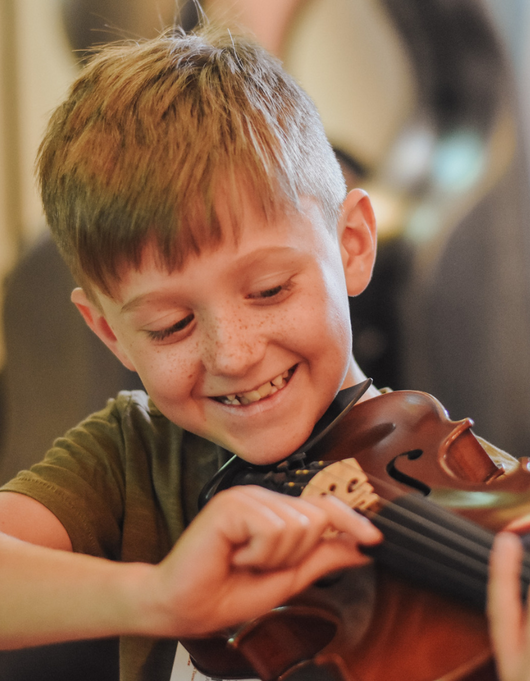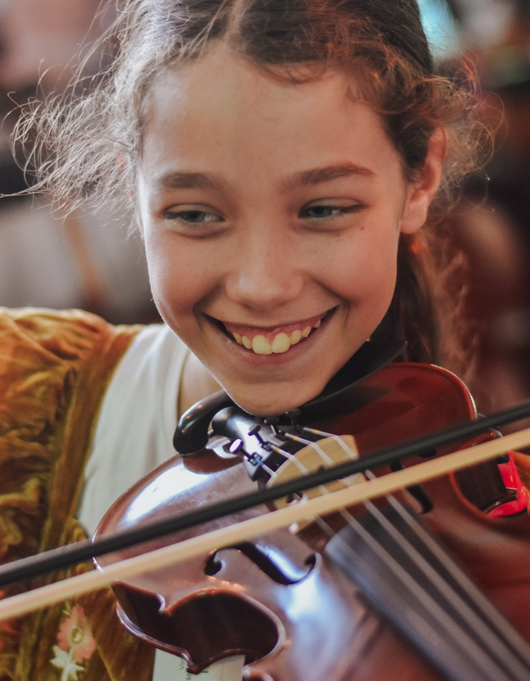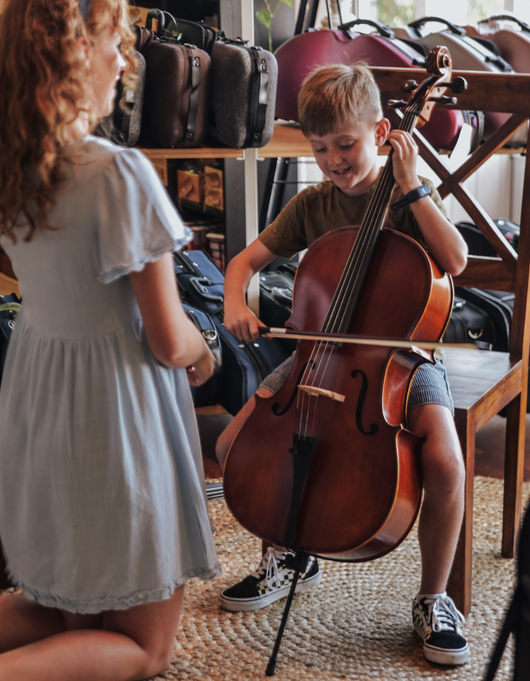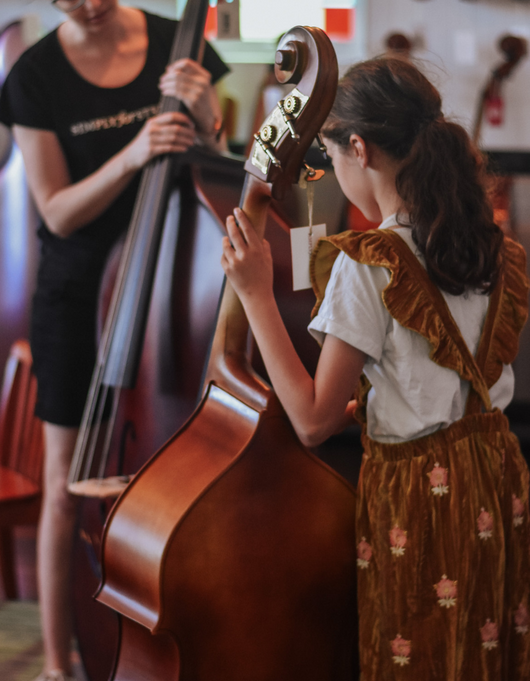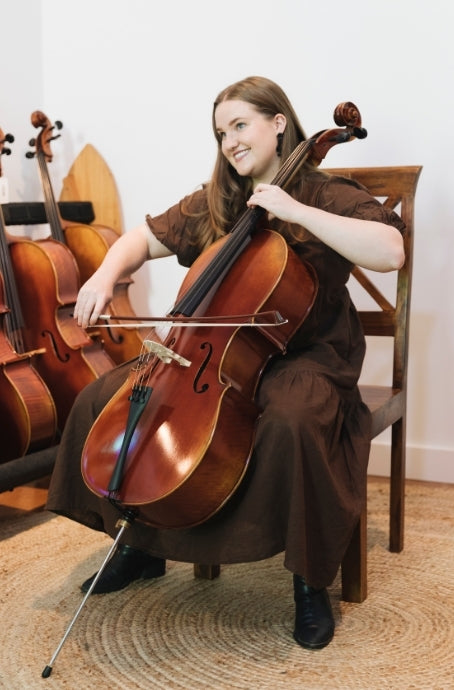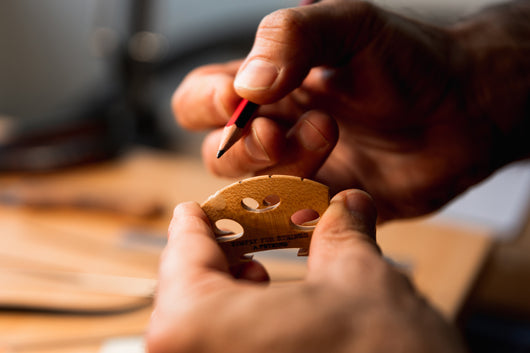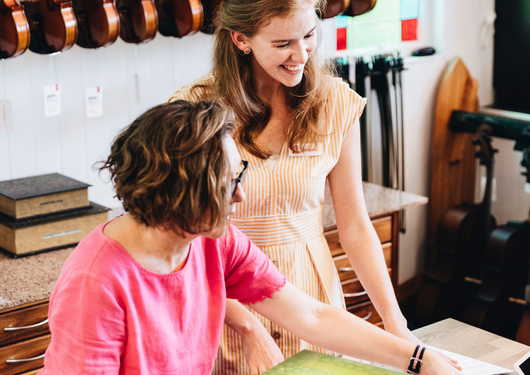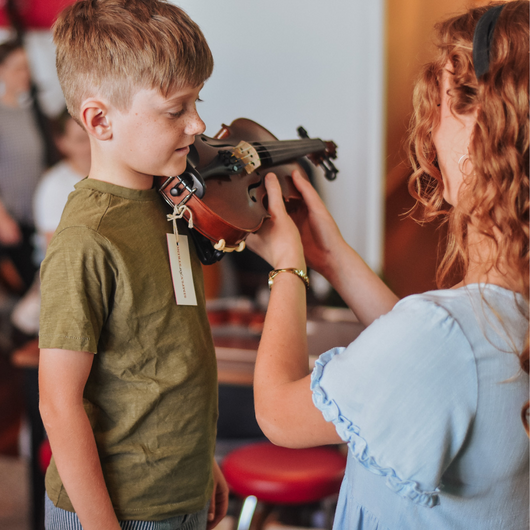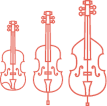Excellent sound and affordability. A long-lasting outfit designed and developed by Simply for Strings for Australian conditions. The Prelude Cello is a hand-crafted instrument tailored for beginner students. Emphasising clarity and ease of playing, the Prelude Cello is affordable without sacrficing quality.
It is important to us that beginners are able to start on a well-made and enjoyable sounding instrument that has been finished in our Makers studio. The Prelude range has been crafted to reflect excellent value for money and a true cello sound. This craftsmanship combined with durable materials allows the instrument to be responsive and enjoyable to play.
The Prelude Cello is a hand-crafted instrument tailored for beginner students - it's one of our best-sellers! Emphasising clarity and ease of playing, the Prelude Cello represents quality and affordability.
The Prelude Cello Outfit Including the Simply for Strings set up is a competitively priced, excellent beginner instrument, handmade from traditional tone woods.


Sound Profile
Find your sound! Quickly identify the different tonal characteristics of each instrument brand and model. Our Sound Profile can help you find the type of voice you’re seeking, whether the instrument range is beginner, intermediate or beyond. We gathered six string players and teachers to blindly listen to each instrument and develop our unique and comprehensive Sound Profile. Learn More about Sound Profiles.
| Top: | Solid Spruce - arching aiding in a clearer, more powerful sound |
| Back, Neck & Sides: | Solid Maple |
| Purfling: | Inlaid |
| Pegs: | Ebony - finished and fitted by hand |
| Fingerboard: | Ebony |
| Tailpiece: | Lightweight carbon composite with inbuilt fine tuners |
| Endpin: | Solid metal with height-adjustable screw |
| Bridge: | Seasoned maple - hand-carved and fitted |
| Strings: | Student steel-core |
| Grade: | Beginner students |
| Varnish: | Light brown shaded finish |
| Outfit: | Yes - comes with a lightweight padded bag |
| Inclusions: | Student Brazilwood bow with ebony frog and horsehair |
| Country of Origin: | Handmade in China. Finished & Set Up in Australia. |
At Simply for Strings, our luthiers and staff ensure that each instrument is individually assembled, setup, tuned, and inspected to our highest standards. Your instrument will be ready to play when you receive it—not sent to you unstrung or in pieces as sold by other online suppliers.

OUR SET UP INCLUDES:
- Shaping and re-surfacing the fingerboard
- Carving and fitting the bridge to the instrument
- Carving the nut to professional curvature
- Fitting pegs
- Polishing the finish
- Installing strings and tuning the instrument
- Fitting and adjusting the sound post
- Fitting and adjusting the tailpiece
- Inspecting and pre-rosining the bow

SHIPPING
- We work hard on processing and delivering your order as quickly as we can! We’re pleased to offer free standard shipping on all orders over $99* Australia wide.
- We aim for all of our parcels to have a safe delivery and we keep you updated every step of the way.
- All of our orders are packed in 100% eco-friendly packaging.
- Every single order is checked and packed by professional musicians who understand the nuances of every product we sell.
- Express shipping and click & collect services available. For more information on Shipping & Returns, please click here.
RETURNS
- Happiness guaranteed, no-nonsense returns.
- 30 days to change your mind! 3 easy steps to request a return through our portal. Just let us know what items you want to return, print a return label and pack your items.
- Easy exchanges available to help you find the product that’s perfect for you.
- Simply for Strings acknowledges and upholds all guidelines and terms under The Australian Consumer Law (ACCC). For more information on Shipping & Returns, please click here.

Packaged with Care
Trust us! We ship more instruments than anyone else in Australia.
Any unlikely damages during shipping are covered by us. Delivery day is special when you receive a Simply for Strings parcel. All of our orders are packed by our team of musicians in 100% eco-friendly packaging. Investing in an instrument is a big deal - our instruments are carefully bubble wrapped and packed in custom boxes to minimise movement during transit. If anything is damaged upon arrival, we’ll sort it in a jiffy! Whether you're ordering a new set of strings or a delicate musical instrument, every single order is packaged and sent with care. READ MORE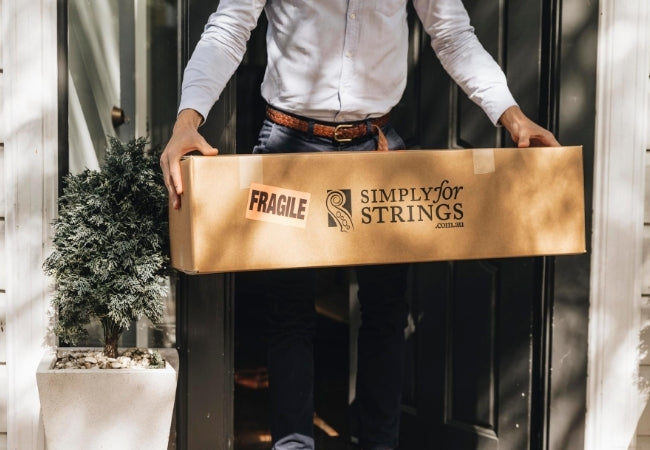
Why Simply for Strings







